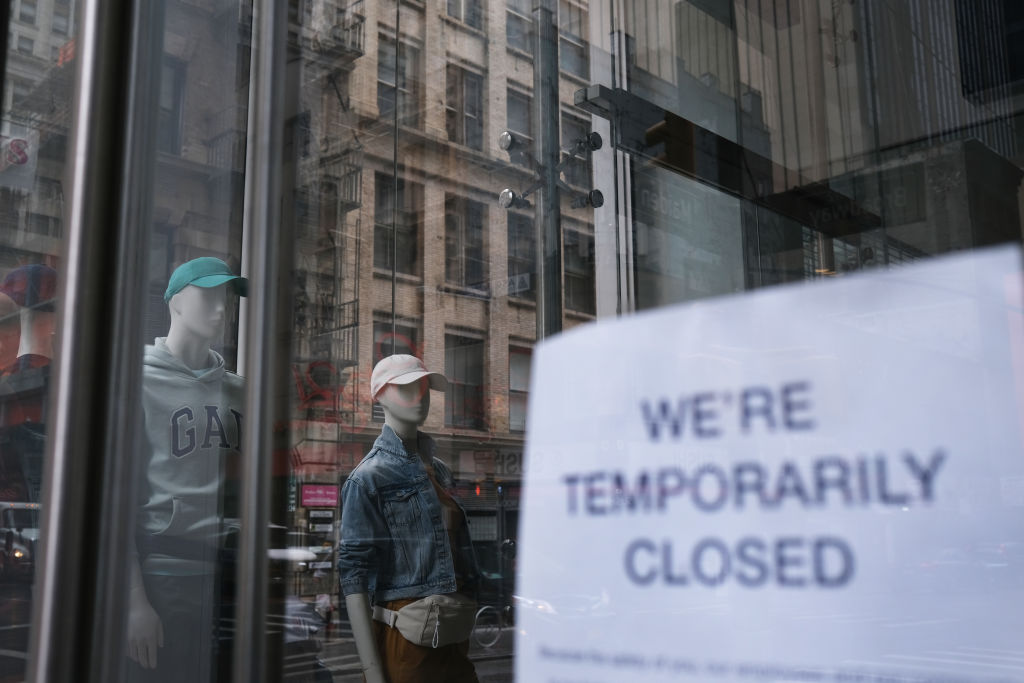Washington Post analysis reveals coronavirus recession is 'most unequal' in history


A free daily email with the biggest news stories of the day – and the best features from TheWeek.com
You are now subscribed
Your newsletter sign-up was successful
The coronavirus led to steeper job losses than the U.S. has ever seen — and it's hitting certain demographics harder than others.
Americans are slowly starting to regain the massive number of jobs lost at the start of the COVID-19 pandemic. But a data analysis by The Washington Post showed mothers of young children, Black people, young Americans, and some other groups have recovered more slowly than others, leading the Post to label the COVID-19 recession "the most unequal in modern U.S. history."
"Between February and April, 10 percent of Americans ages 25 to 54 lost their jobs," leading the percentage of employed Americans to hit its lowest level since 1975, the Post writes. As of August, about half of those jobs have been regained, but the recovery hasn't been equal. While white Americans have recovered more than half of their jobs, Black Americans have regained just over a third of theirs, the Post analysis shows.
The Week
Escape your echo chamber. Get the facts behind the news, plus analysis from multiple perspectives.

Sign up for The Week's Free Newsletters
From our morning news briefing to a weekly Good News Newsletter, get the best of The Week delivered directly to your inbox.
From our morning news briefing to a weekly Good News Newsletter, get the best of The Week delivered directly to your inbox.
Young Americans age 20-24 meanwhile saw the steepest drop of any age group early in the pandemic, while workers age 25-34 have seen the shallowest recovery rate of any age group. Mothers also lost a greater percentage of their jobs than fathers did, and have seen slower recovery, especially if they're raising young children. And when directly compared to the 1990, 2001, and 2008 recessions, it's clear the COVID-19 pandemic hit the lowest-earning Americans harder than ever before.
Explore more data at The Washington Post.
A free daily email with the biggest news stories of the day – and the best features from TheWeek.com
Kathryn is a graduate of Syracuse University, with degrees in magazine journalism and information technology, along with hours to earn another degree after working at SU's independent paper The Daily Orange. She's currently recovering from a horse addiction while living in New York City, and likes to share her extremely dry sense of humor on Twitter.
-
 The Olympic timekeepers keeping the Games on track
The Olympic timekeepers keeping the Games on trackUnder the Radar Swiss watchmaking giant Omega has been at the finish line of every Olympic Games for nearly 100 years
-
 Will increasing tensions with Iran boil over into war?
Will increasing tensions with Iran boil over into war?Today’s Big Question President Donald Trump has recently been threatening the country
-
 Corruption: The spy sheikh and the president
Corruption: The spy sheikh and the presidentFeature Trump is at the center of another scandal
-
 TikTok secures deal to remain in US
TikTok secures deal to remain in USSpeed Read ByteDance will form a US version of the popular video-sharing platform
-
 Unemployment rate ticks up amid fall job losses
Unemployment rate ticks up amid fall job lossesSpeed Read Data released by the Commerce Department indicates ‘one of the weakest American labor markets in years’
-
 US mints final penny after 232-year run
US mints final penny after 232-year runSpeed Read Production of the one-cent coin has ended
-
 Warner Bros. explores sale amid Paramount bids
Warner Bros. explores sale amid Paramount bidsSpeed Read The media giant, home to HBO and DC Studios, has received interest from multiple buying parties
-
 Gold tops $4K per ounce, signaling financial unease
Gold tops $4K per ounce, signaling financial uneaseSpeed Read Investors are worried about President Donald Trump’s trade war
-
 Electronic Arts to go private in record $55B deal
Electronic Arts to go private in record $55B dealspeed read The video game giant is behind ‘The Sims’ and ‘Madden NFL’
-
 New York court tosses Trump's $500M fraud fine
New York court tosses Trump's $500M fraud fineSpeed Read A divided appeals court threw out a hefty penalty against President Trump for fraudulently inflating his wealth
-
 Trump said to seek government stake in Intel
Trump said to seek government stake in IntelSpeed Read The president and Intel CEO Lip-Bu Tan reportedly discussed the proposal at a recent meeting
